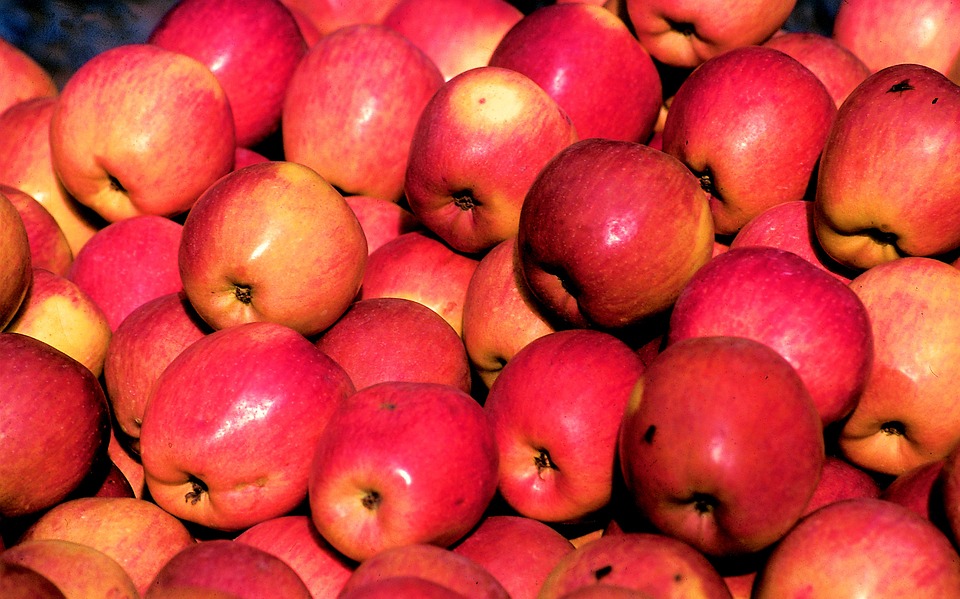Should We Buy Organic Apples?
As a nutrition editor, I know the value of eating loads of fruits and vegetables. I prefer to buy local when I can, but I’ve never been a purist about eating only organic. Now that I’m a mom, there are some foods I feel more comfortable about buying organic. Apples are one of these foods. Twenty-five years ago, mothers had to worry about Alar, a spray used to redden apples and make them ripen at the same time. Luckily, I don’t have to: Alar’s manufacturer pulled it from the market in 1989 after reports linked the chemical to cancer. This “Alar scare” (which many now say was overblown) ultimately may have made apples—and produce in general—safer by forcing the Environmental Protection Agency to re-evaluate pesticide regulations.

But apples still rank second (following peaches) on the nonprofit Environmental Working Group’s “Dirty Dozen” list of fruits and vegetables with the highest pesticide residues. Long-term exposure to pesticides has been associated with cancer, infertility and neurologic conditions, such as Parkinson’s. Since I know that small doses of pesticides are far more dangerous to children (whose bodies are smaller and nervous systems are still developing) than to adults, I felt strongly about taking Julian to Shelburne Orchards, where we could pick organic apples. I just couldn’t imagine pureeing up apples with pesticides to give to Julian as one of his very first foods. Today, I still choose organic apples for Julian but often eat conventional ones myself.
David Wallinga, M.D., director of food and health for the Institute for Agriculture and Trade Policy, recently told me that scientists believe that some pesticides wreak their damage by operating as free radicals, compounds that damage tissues in ways that can lead to the development of cancer and other diseases. Minimizing your exposure to pesticides will reduce this free-radical damage, of course, says Wallinga, but so will consuming more antioxidants, which mop up free radicals. Apples—whether they’re organic or conventional—are full of antioxidants, specifically flavonols, anthocyanins and vitamin C. And you can reduce your exposure to potential pesticide residues on them by doing the following:
1. Think about buying certified organic apples. USDA certification restricts all chemical pesticides.
2. Chat with your local grower about his pest-management practices. “Organic certification can be expensive and he may be growing without pesticides but [not marketing as organic] because he doesn’t want to have to raise his prices,” says Wallinga. If a grower is spraying, ask when. “Some growers spray only in the spring before the fruits form,” says Wallinga. “They nip the pests in the bud, so to speak.” Residues generally originate from “preharvest” spraying in the fall after the apples appear.
3. Wash your fruit. Research shows that rinsing your apple thoroughly under running water removes some pesticides. No need for a fancy vegetable-and-fruit wash (or even a mild soap): scientists at the Connecticut Agricultural Experiment Station in New Haven have shown that plain water is just as effective.
4. Consider removing the peel. Many of the pesticides stay in the peel, so discarding the skin can reduce residues significantly—by up to 98 percent, according to a 2008 Journal of Agricultural and Food Chemistry study. But ditch the peel and you lose out on half the fiber and many of the antioxidants. “If your choice is to peel off the thing that carries many of the nutrients or feel freaked out that you’re consuming pesticide residues,” says Wallinga, “you may have the wrong apple in front of you.”
By Nicci Micco












Recent Comments